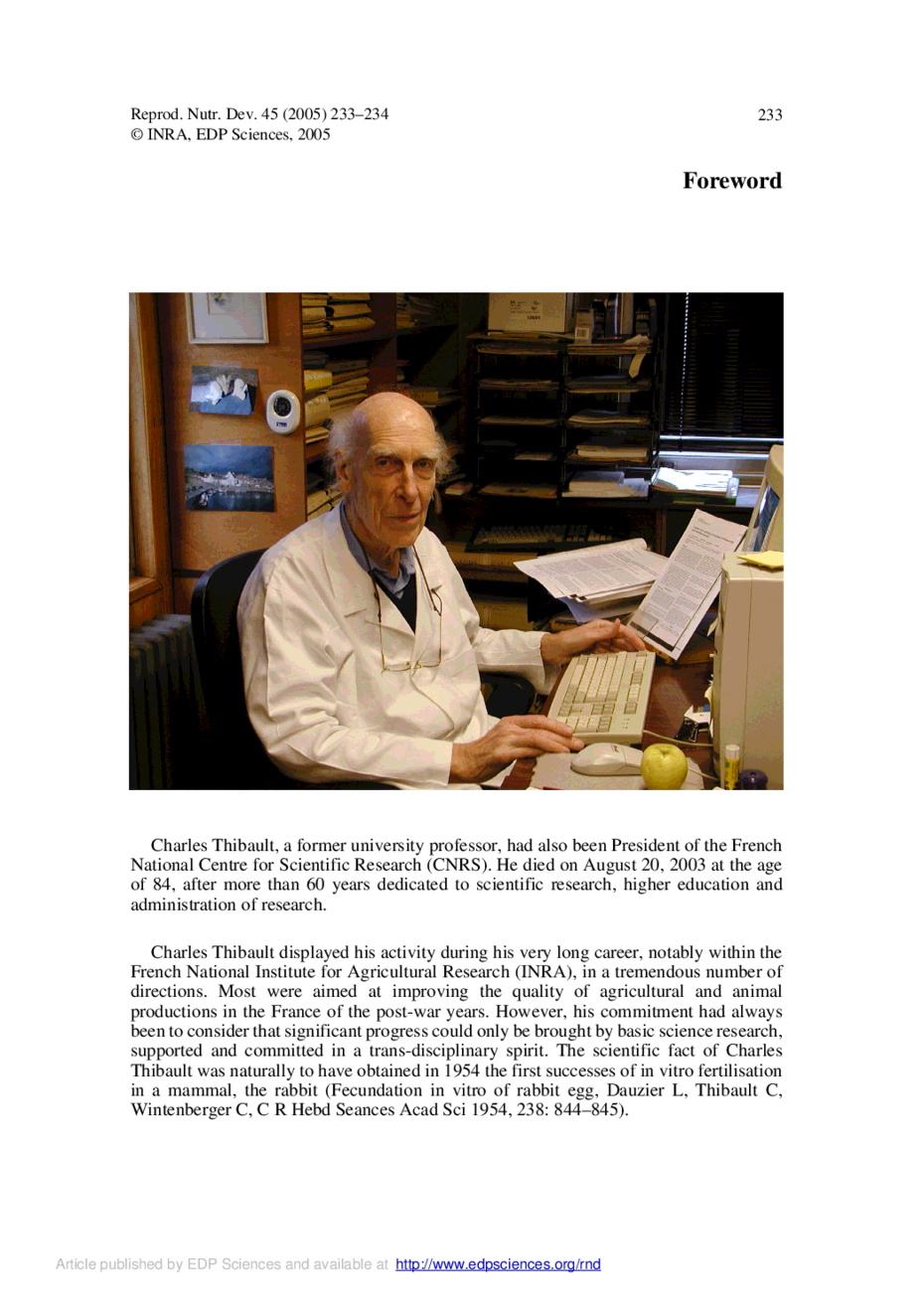Free Access
Foreword
| Issue |
Reprod. Nutr. Dev.
Volume 45, Number 3, May-June 2005
SYMPOSIUM: Homage to Professor Charles Thibault
|
|
|---|---|---|
| Page(s) | 233 - 234 | |
| DOI | https://doi.org/10.1051/rnd:2005041 | |
Reprod. Nutr. Dev. 45 (2005) 233-234
DOI: 10.1051/rnd:2005041
© INRA, EDP Sciences 2005
DOI: 10.1051/rnd:2005041
Editorial
Foreword
Philippe Chemineau, Claude Delouis and Guy Germain
Charles Thibault, a former university professor, had also been President of the French National Centre for Scientific Research (CNRS). He died on August 20, 2003 at the age of 84, after more than 60 years dedicated to scientific research, higher education and administration of research.
© INRA, EDP Sciences 2005
First page of the article



